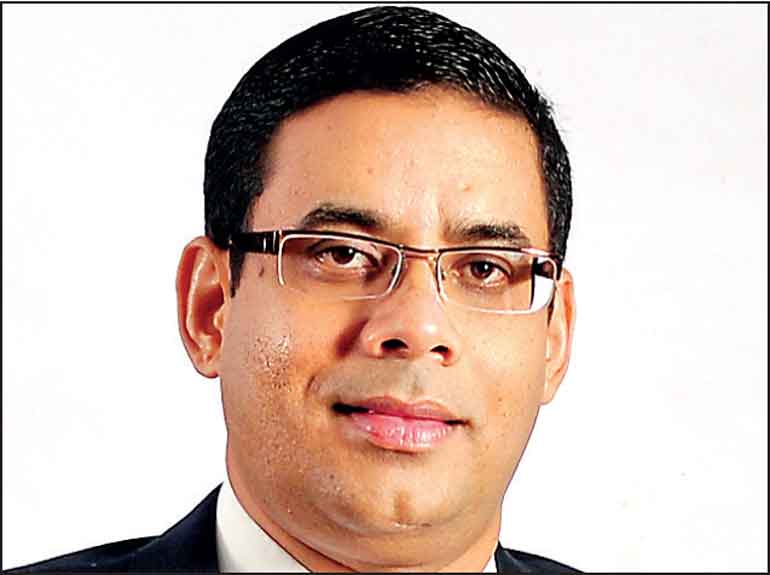Wednesday Feb 18, 2026
Wednesday Feb 18, 2026
Wednesday, 10 July 2024 00:00 - - {{hitsCtrl.values.hits}}

Human Capital Summit 2024 Chairman Dinesh Weerakkody
Human Capital Summit 2024 (HCS) Chairman Dinesh Weerakkody in this interview talks of the objectives and deliverables of the HCS 2024. Following are excerpts.
 Q: To begin, what did you achieve from the Human Capital Summit held in 2016?
Q: To begin, what did you achieve from the Human Capital Summit held in 2016?
A: HCS was an idea of the current President. He wanted to create a platform to bring all the key actors together to find solutions to our skills challenges. The 2016 summit brought forth some thought-provoking conversations among key decision makers in the country which resulted in several breakthrough ideas which benefited the policy makers. The reports are available on NHRDC.lk. Some of the proposals were presented and implemented within the private and public sectors.
Q: What is the focus of the 2024 Human Capital Summit (HCS) 2024?
A: Sri Lanka needs to build a strong sustainable export economy which is competitive amidst rapidly growing emerging economies in Asia. A skilled talent workforce will have to be in place within a short period in order to make Sri Lanka a preferred business and investment destination. A well-educated and skilled workforce is essential for driving economic growth through productivity gains and innovation. Therefore Sri Lanka needs to make significant strides in improving its education system, an educated populace will provide a strong foundation for economic development.
Unfortunately Sri Lanka has lost millions of trained talent to developed countries. Sri Lanka experienced a significant loss of young talent in 2022. This loss of young talent poses significant long-term challenges for Sri Lanka, including a potential slowdown in innovation, reduced economic growth, and a weakened talent pool for future development of the country.
To address these challenges Sri Lanka needs to stabilise its economy, improve governance, and create conditions that make staying and contributing to the local economy attractive for its young professionals. Retaining young educated workers is a critical challenge for Sri Lanka, requiring a multifaceted approach. The HCS will focus on strategies that have worked to reverse the brain drain and also on key short term strategies that can help build a strong talent pool in the shortest possible time for selected key sectors.
Q: The Human Capital Index (HCI) measures the potential productivity of the next generation of workers, reflecting the effectiveness of education and health in a country. A static HCI in Sri Lanka since 2012 indicates stagnation in these crucial sectors.
A: The need of the hour in Sri Lanka is to elevate the economy from a lower-middle to an upper-middle income level through inclusive growth. In this context, the development of human capital is imperative in order to triple the GNI per capita from $ 4,120 to $ 12,000. The fourth industrial revolution and the concern for inclusivity for sustainable growth adds further complexity and urgency to this issue. Sri Lanka’s labour force participation rate stands at around 52.2% (World Bank, 2020). Increasing the quality of human capital can enhance labour force participation by equipping individuals with the skills necessary to engage in productive employment, thereby contributing to economic growth.
Q: Your thoughts on education reforms?
A: Short answer, we need to align the curriculum with modern economic demands, emphasising STEM (Science, Technology, Engineering, and Mathematics) education.
Improve teacher training programs to ensure high-quality instruction and incorporate digital tools and resources into classrooms to enhance learning. This is one of the reasons publiclearn.lk was launched.
Q: Sri Lanka as a nation is very low on startups. Will the HCS address this challenge?
A: Yes. Human capital development fosters a culture of innovation and entrepreneurship, which are critical drivers of economic growth. Educated and skilled individuals are more likely to engage in entrepreneurial activities, leading to the creation of new businesses and industries that drive economic expansion.
Q: In the 21st century, economies increasingly rely on knowledge and innovation for growth. Sri Lanka’s investment in education and training has been disappointing?
A: Certainly we need to invest more and do it smarter because intellectual capital is a primary driver of competitiveness and growth. Sri Lanka’s investment in education must match other emerging nations. On the Global Competitiveness Index Sri Lanka ranks 84th out of 141 economies assessed. Investing in human capital can enhance Sri Lanka’s global competitiveness by ensuring a skilled workforce capable of meeting the skill requirements of the investors.
Q: Finally what is your message to policymakers and wealth creators?
A: It is now well-established that investing in human capital improves overall societal well-being by reducing poverty, promoting social mobility, and fostering inclusive growth. A well-educated and healthy population is better equipped to participate in and benefit from economic opportunities, leading to more equitable development outcomes. We saw this in ASEAN countries. India’s economic surge can indeed be attributed to significant investments in its human capital.
Q: As an HR veteran what is your formula for success?
A: Something I have been advocating for years, smart investments in human capital, combined with economic reforms and smart infrastructure development. That can attract quality FDI and create new jobs for our educated youth.
(The writer is a CIMA passed finalist.)